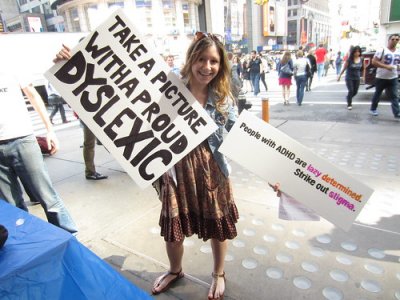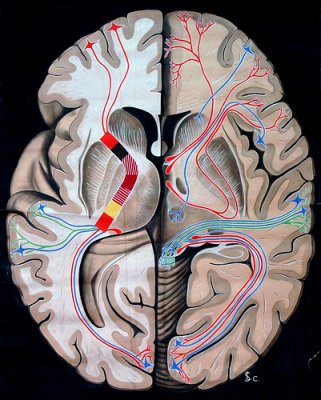Learning Disability vs Learning Difficulty vs Learning Disorder – The Debate Continues

photo by Norma Mortenson for Pexels
by Andrea M. Darcy
Have you or your child been flagged for a learning assessment? And you are trying to research, but find yourself confused and overwhelmed between learning disability vs learning difficulty vs learning disorder? Let alone this talk of ‘SpLDs’?
Diagnosis Gone Wrong?
You are far from alone in your confusion. And no, it’s not in your head – the terms are indeed used differently on different websites and by different organisations.
In an attempt to define issues with learning, including language? Rather ironically, the mental health industry can’t agree on their words.
The main confusions come between:
- disability vs difficulty
- difficulty vs difficulty vs disorder
- difficulty vs difference.
How did this confusion happen?
The reason for the confusion is that:
- Different countries are using terms in very different ways, particularly America vs. the United Kingdom.
- Different diagnostic manuals have different approaches, chiefly the DSM-V (American) and the ICD-10 (rest of the world).
- Organisations and health practitioners are not often using the same terminology put forward by the diagnostic manuals. Psychiatrists do, psychologists and organisations don’t.
- The field of learning and developmental disorders and difficulties is still new and growing, so new information can change and challenge current terminology.
- There is also politics at play, with many protesting against the negative connotations of current terminology.
- It’s still debated if learning difficulties should be standalone diagnoses. Yes, really.
America vs United Kingdom

By: Walt Stoneburner
The American Psychiatric Association tries to address the different terminology mess on its page about ‘Specific Learning Disorder’, its chosen label. Unfortunately all they manage is to make clear that it’s a maze for parents. They say:
“A note on terminology: Specific learning disorder is a medical term used for diagnosis. It is often referred to as “learning disorder.” “Learning disability” is a term used by both the educational and legal systems. Though learning disability is not exactly synonymous with specific learning disorder, someone with a diagnosis of specific learning disorder can expect to meet criteria for a learning disability and have the legal status of a federally recognised disability to qualify for accommodations and services in school. The term “learning difference” is a term that has gained popularity, especially when speaking with children about their difficulties, as it does not label them as “disordered.”
Despite this attempt at clarity, many USA sites still call dyslexia, for example, a ‘learning disability’. Here in the UK it is never considered a disability, but a difficulty.
So if you live here in the United Kingdom, a general Google search can turn up American sites, which can provide not only different terminology, but diagnoses that don’t exist in the UK, such as ‘non verbal learning disorder’, which comes under the autism spectrum here.
Learning difficulty vs learning disability in the UK
You’ll find varying terms, but in general it still stands that the main difference in the UK is seen as one of intellect and coping.
As the Mental Health Foundation states, “distinguishing between learning difficulties and learning disabilities is quite a complex issue… a learning difficulty does not affect general intelligence, whereas a learning disability is linked to an overall cognitive impairment”.
So a learning ‘difficulty’ means you might struggle, but you can still cope and have an independent life.
A learning ‘disability’ affects intellect to the point you can’t manage independently but need support for your day-to-day life.
Of course another problem is that each person manifests a learning challenge differently. For some it might be mild and manageable, for others severe.
So what might be a learning difficulty for one person might veer toward the definition of a disability for another!
And then came the SpLDs
Each individual will manifest a learning difficulty differently. And many of the diagnoses overlap. You might, say, seem to have dyslexia and dysgraphia.
Because of this, educational psychologists now tend to use an umbrella diagnosis of ‘specific learning difficulties’, or SpLD.
In an attempt to be more positive, some charities and organisations translate this to ‘Specific Learning Differences’ instead of difficulties.
What is included as a ‘learning difficulty’ in the UK?
Another point of confusion is over what is and what isn’t counted as a learning difficulty.
Dyslexia is the most common, and then dysgraphia. Dyscalculia was at first only an American term but is now even mentioned on the NHS’s dyslexia page.
Dyspraxia is now often included as a SpLD, even though clinically it’s not a learning difficulty but a developmental disorder, like autism spectrum disorder (which includes Asperger’s syndrome).
Attention deficit hyperactivity disorder (ADHD) is not clinically a learning difficulty either, but is often listed along with the others.
What about Non-Verbal Learning Difficulties and the related ‘auditory processing disorder’? These are American diagnoses that are not currently made in the UK. Your child is more likely to be diagnosed as on the autism spectrum.
For more on this, see our connected article, ‘Types of Learning Difficulties‘.
What does NICE say?
The National Institute for Health and Care Excellence (NICE), which is the closest that the UK has to its own diagnostic manual, has decided to not step in.
NICE only addresses learning disabilities, where independence is affected. They do not publish any guidelines for diagnosing or treating learning difficulties, not even dyslexia.
Again, some in the UK still debate if dyslexia should be considered a standalone diagnosis. The heated debate resulted inthe now famous ‘Rose Paper’ an independent review on dyslexia for UK government carried out by Sir Jim Rose, that contains the ‘official’ definition still in use.
And what about the Royal College of Psychiatrists?
The RC Psych does not help the terminology confusion. Although they use ‘learning disability’ like other agencies and charities, they then use ‘specific learning disability’ for what other agencies see as ‘learning difficulties’.
Perhaps as NICE has not stepped in, they go with the official term from the World Health Organisation’s diagnostic manual, the ICD-10. Psychiatrists must align with official diagnostic manuals as these manuals provide codes that are used for prescribing drugs and processing insurance claims.
The politics of language and neurodiversity
By: Double-M
The latest challenge to the vocabulary of learning is coming from those who actually live with learning differences, and the charities and organisations supporting and representing them.
The health industry has been called out for choosing negative labels that put people in a ‘lesser than’ light.
This movement demands that the word ‘difficulty’ and ‘disability’ disappear altogether in favour of the term ‘neurodiverse’.
So how do I talk about my learning differences, or those of my child?
Learning difficulties are not as cut and dried as all the labels might suggest. There is often a lot of overlap. Plus, each individual manifests a learning difficulty differently.
For example, one person with dyslexia might find reading impossible but be very good at memorising. Another might find memorising very hard, but can guess their way through texts.
Again, most psychologists, as well as charities and organisations, now veer toward ‘specific learning difficulty’, or SpLD.
But use the language that feels right for you. What matters is not what you call it, but that you reach out and get the support and information to help you or your child reach their potential. If your child is being given a statutory assessment and EHC plan, don’t be afraid to ask to have things explained to you in ways you can understand.
Would you like a learning difficulties assessment for you or your child? Harley Therapy now provides educational psychologists in central London locations. Need some parental support? Use our booking site to find UK-wide therapists.
Still have a question re learning disability vs learning difficulty? Ask in the comment box below.







Is the term Specific Learning Disability now being used to cover Dyspraxia, Dyslexia ADHD in UK Law? An individual studying law swears blind that Dyspraxia is now a Specific Learning Disability. I consider this extremely derogatory but accept that people with dyspraxia have a huge range of impairment/difficulty and may also have other conditions that may more severely affect their independence as adults. Obtaining a ‘diagnosis as an adult and thus the proof to compel an employer to provide reasonable adjustment is very difficulty unless an employer pays or the individual feels content to invest £300 – 800+
Hi there Tom not sure re the law end. It does seem that different charities, organisations, and even government sites are all grouping things differently. But not not ‘disability’ now its specific learning difficulty or even difference.
Thanks for your response. Personally, I veer strongly towards Learning difference but appreciate it’s emotive and if people consider it a disability, that is their preogative
The individual cites a recent employment tribunal where the claimant characterised his dyspraxia as a learning disability and as such this individual is rudely shouting down those who identify more closely with the term specific learning difficulty